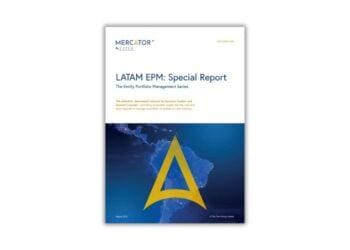When I was working in Argentina in the late 1990s, I remember images of then-President Carlos Menem driving a red Ferrari. In response to criticism, he said, “I am going to leave this car as property of the nation. But meanwhile I shall use it myself.”
Since that time, I have continued to work on anti-corruption matters involving the country. Based on my experiences there, here are some common risks I have seen over the years.
Customs. Argentina has a bad reputation for corruption among its customs officials. In the 2012 Latin America Corruption Survey, 90 percent of respondents with experience in Argentina reported “significant corruption” in customs. In the Ralph Lauren FCPA action, the company’s Argentine subsidiary paid customs officials through a third-party broker to improperly obtain or facilitate customs clearance. In the 2011 Ball Corporation FCPA action, the company’s Argentine subsidiary was alleged to have paid more than $100,000 in bribes to import prohibited equipment and parts. To make matters worse, Argentina imposes stiff tariffs on exports, creating yet another opportunity for customs officials to seek undue payments.
Corruption in Argentina’s customs system severely affects not only multinational companies, but also local companies whose businesses rely on imports. One method adopted by local lawyers to mitigate customs-related risk is to advise clients to expect a six-month delay for customs clearance – six months is generally longer than customs officials will hold up a shipment while seeking a bribe. But the delays accepted by this approach suggest just how difficult it is to work with Argentine customs without paying bribes.
Shell Companies. Corrupt schemes in Argentina are often carried out using empresas fantasmas – phantom companies set up within Argentina or offshore to hide or improperly channel funds. For example, Siemens used the “Argentine Consulting Group” without an apparent business justification other than to transfer funds back to government officials. In 2012, the tax collection authority in the country closed down more than 300,000 shell companies suspected of operating for purposes of tax evasion. FCPAméricas has previously discussed how to detect phantom vendors and how to avoid sham contracts. Given the prevalence of these schemes, any use of a third-party agents, brokers or consultants in Argentina should be subject to heightened scrutiny, including robust due diligence and ongoing monitoring.
Currency Controls. Beginning in 2011, in an effort to stem capital flight, Argentina began implementing severe restrictions on the ability of businesses and individuals to convert pesos into dollars. This led to the proliferation of an overt black market for dollars, where exchange rates at times have exceeded the country’s official rate by more than threefold. These developments create incentives for companies to engage in opaque and risky payment structures to reduce risk that their profits will be stuck in currency with uncertain value. Efforts to “work around” exchange controls also implicate anti-money laundering laws as well as the FCPA’s books and records and internal controls provisions.
Dramatic Policy Swings. Economic policy in Argentina tends to color corruption risk. Over the years, it has swung between extremes, moving from IMF-backed, market-oriented privatizations to nationalizations and dirigisme. Each extreme brings with it different corruption risks. For example, poorly managed privatizations in the 1990s resulted in huge sums of money flowing into officials’ private bank accounts instead of public coffers. Under today’s Kirchner administration, the government has established just the opposite – widespread interference in the economy, creating different forms of government interaction related to price controls, nationalizations (like that of YPF), and cost-reporting requirements in highly sensitive industries, like agriculture and energy. Such rapid and dramatic changes create confusion within institutions and the sectors they regulate. They leave government institutions weakened and more vulnerable to corruption.
Capitalism Among Friends. “Capitalismo de amigos” is a common phrase in Argentina, reflecting a tendency of government officials to direct business to entities with which they are personally related. This creates heightened corruption risk in public procurement. For example, President Kirchner has been accused of directing public contracts to a businessman from her native Santa Cruz Province who, in turn, booked empty rooms – that were never used – in hotels owned by the Kirchner family. Having spent so many years in Argentina, these are difficult realities to acknowledge – especially since they involve a country of which I am so fond, and that has so much potential.
The opinions expressed in this post are those of the author in his or her individual capacity and do not necessarily represent the views of anyone else, including the entities with which the author is affiliated, the author`s employers, other contributors, FCPAméricas or its advertisers. The information in the FCPAméricas blog is intended for public discussion and educational purposes only. It is not intended to provide legal advice to its readers and does not create an attorney-client relationship. It does not seek to describe or convey the quality of legal services. FCPAméricas encourages readers to seek qualified legal counsel regarding anti-corruption laws or any other legal issue. FCPAméricas gives permission to link, post, distribute or reference this article for any lawful purpose, provided attribution is made to the author and to FCPAméricas LLC.



 Matteson Ellis serves as Special Counsel to the FCPA and International Anti-Corruption practice group of Miller & Chevalier in Washington, DC. He is also founder and principal of Matteson Ellis Law PLLC, a law firm focusing on FCPA compliance and enforcement. He has extensive experience in a broad range of international anti-corruption areas. Previously, he worked with the anti-corruption and anti-fraud investigations and sanctions proceedings unit at The World Bank.
Mr. Ellis has helped build compliance programs associated with some of the largest FCPA settlements to date; performed internal investigations in more than 20 countries throughout the Americas, Asia, Europe and Africa considered “high corruption risk” by international monitoring organizations; investigated fraud and corruption and supported administrative sanctions and debarment proceedings for The World Bank and The Inter-American Development Bank; and is fluent in Spanish and Portuguese.
Mr. Ellis focuses particularly on the Americas, having spent several years in the region working for a Fortune 50 multinational corporation and a government ethics watchdog group. He regularly speaks on corruption matters throughout the region and is editor of the FCPAméricas Blog.
He has worked with every facet of FCPA enforcement and compliance, including legal analysis, internal investigations, third party due diligence, transactional due diligence, anti-corruption policy drafting, compliance training, compliance audits, corruption risk assessments, voluntary disclosures to the U.S. government and resolutions with the U.S. government. He has conducted anti-corruption enforcement and compliance work in the following sectors: agriculture, construction, defense, energy/oil and gas, engineering, financial services, medical devices, mining, pharmaceuticals, gaming, roads/infrastructure and technology.
Mr. Ellis received his law degree, cum laude, from Georgetown University Law Center, his masters in foreign affairs from Georgetown’s School of Foreign Service, and his B.A. from Dartmouth College. He co-founded and serves as chairman of the board of
Matteson Ellis serves as Special Counsel to the FCPA and International Anti-Corruption practice group of Miller & Chevalier in Washington, DC. He is also founder and principal of Matteson Ellis Law PLLC, a law firm focusing on FCPA compliance and enforcement. He has extensive experience in a broad range of international anti-corruption areas. Previously, he worked with the anti-corruption and anti-fraud investigations and sanctions proceedings unit at The World Bank.
Mr. Ellis has helped build compliance programs associated with some of the largest FCPA settlements to date; performed internal investigations in more than 20 countries throughout the Americas, Asia, Europe and Africa considered “high corruption risk” by international monitoring organizations; investigated fraud and corruption and supported administrative sanctions and debarment proceedings for The World Bank and The Inter-American Development Bank; and is fluent in Spanish and Portuguese.
Mr. Ellis focuses particularly on the Americas, having spent several years in the region working for a Fortune 50 multinational corporation and a government ethics watchdog group. He regularly speaks on corruption matters throughout the region and is editor of the FCPAméricas Blog.
He has worked with every facet of FCPA enforcement and compliance, including legal analysis, internal investigations, third party due diligence, transactional due diligence, anti-corruption policy drafting, compliance training, compliance audits, corruption risk assessments, voluntary disclosures to the U.S. government and resolutions with the U.S. government. He has conducted anti-corruption enforcement and compliance work in the following sectors: agriculture, construction, defense, energy/oil and gas, engineering, financial services, medical devices, mining, pharmaceuticals, gaming, roads/infrastructure and technology.
Mr. Ellis received his law degree, cum laude, from Georgetown University Law Center, his masters in foreign affairs from Georgetown’s School of Foreign Service, and his B.A. from Dartmouth College. He co-founded and serves as chairman of the board of 






